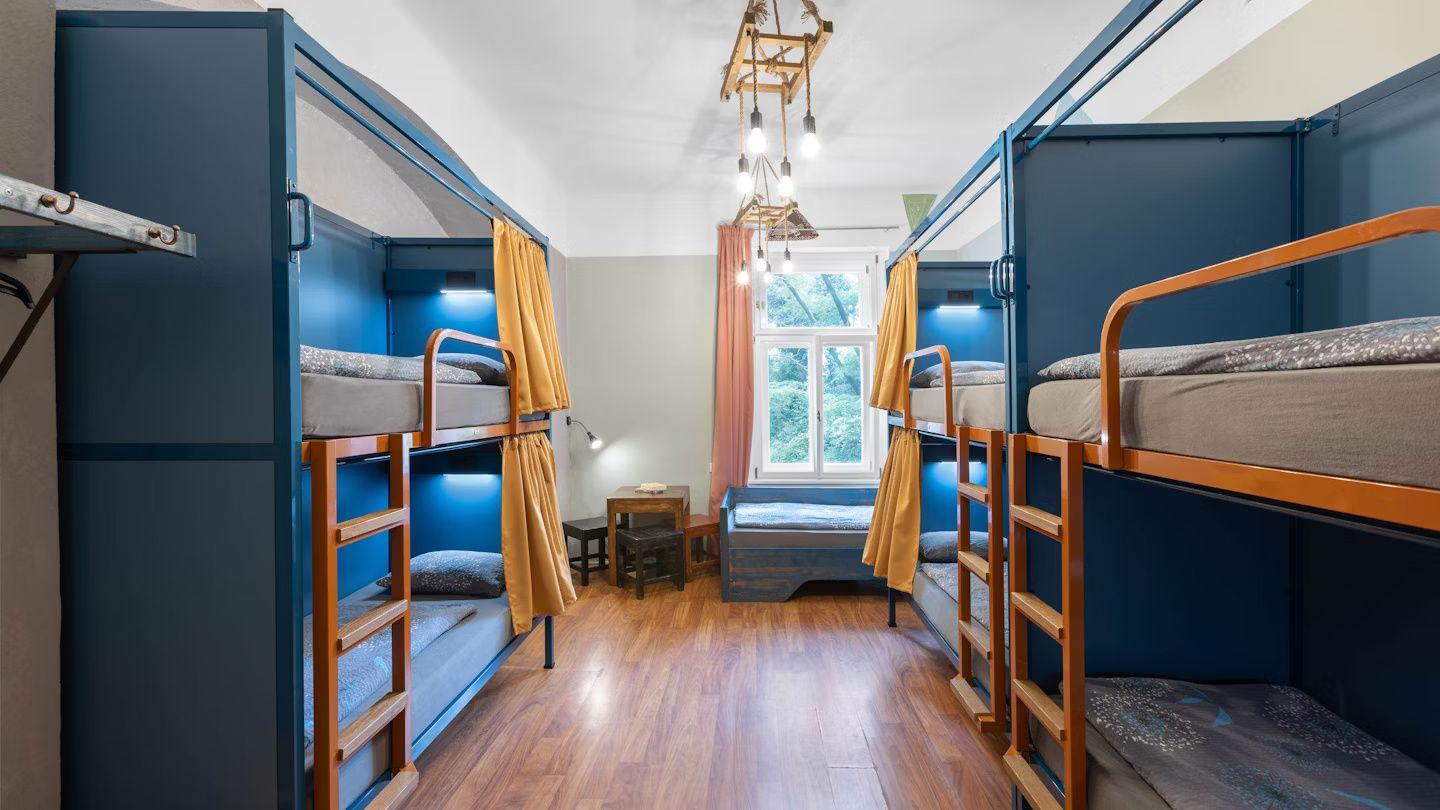Explore Hostels: A Complete Guide with Key Insights and Travel Tips
Hostels have become one of the most flexible and affordable accommodation options for travelers worldwide. Traditionally seen as basic shared lodgings for backpackers and students, hostels have evolved into vibrant social spaces that attract a wide range of guests from solo adventurers to digital nomads and even small families.
Modern hostels emphasize community, cultural exchange, and budget-friendly travel experiences. Unlike hotels, they typically provide dormitory-style rooms with shared amenities, but newer hostels also offer private rooms, coworking spaces, and local activities. The concept of hostels originated in Europe in the early 20th century to promote youth travel and education. Today, it has expanded globally with thousands of properties listed on platforms such as Hostelworld, and Agoda, catering to travelers seeking value and social interaction.
The concept of hostels originated in Europe in the early 20th century to promote youth travel and education. Today, it has expanded globally with thousands of properties listed on platforms such as Hostelworld, and Agoda, catering to travelers seeking value and social interaction.
Why Hostels Matter in Today’s Travel Landscape
Hostels are more than just cheap stays they reflect a shift toward experience-based travel. As travel becomes more inclusive and digital, hostels cater to a generation that values connection, flexibility, and sustainability.
Key benefits of hostels include:
-
Community and Networking: Shared spaces create opportunities to meet people from around the world.
-
Budget-Friendly Stays: Ideal for long-term travelers or those exploring multiple cities.
-
Local Insights: Many hostels are run by locals who can provide authentic travel tips and area knowledge.
-
Flexible Booking Options: Most hostels allow easy check-in, short stays, or extended bookings.
Who benefits the most?
-
Solo travelers seeking social environments.
-
Students and backpackers exploring on limited budgets.
-
Remote workers and digital nomads who need coworking spaces with a social twist.
-
Eco-conscious travelers preferring sustainable, minimal-footprint accommodations.
As the travel industry continues to recover post-pandemic, the hostel sector is helping revive urban tourism and cultural exploration, especially among young travelers seeking meaningful experiences rather than luxury stays.
Recent Trends and Developments in the Hostel Industry
The hostel landscape has transformed significantly over the past few years. Between 2023 and 2025, several global trends have shaped how hostels operate and attract guests.
1. Rise of Hybrid Hostels
Many hostels now blend hotel comfort with community-style living. Examples include brands like Generator Hostels and Selina, which offer stylish interiors, coworking zones, yoga classes, and private suites.
2. Technology Integration
Digital check-ins, mobile room keys, and smart booking systems have streamlined operations. Hostel chains increasingly rely on data-driven management tools to personalize guest experiences.
3. Focus on Sustainability
Green initiatives have become central. Hostels adopt renewable energy, plastic-free operations, and eco-tours to appeal to environmentally conscious travelers.
4. Increased Popularity Among Professionals
Remote workers and freelancers use hostels as temporary bases due to their affordability and social structure. The trend of “work-from-anywhere” has pushed hostels to upgrade Wi-Fi, offer quiet zones, and host networking events.
5. Regional Growth
-
Europe remains the strongest market, especially in countries like Spain, Germany, and the Netherlands.
-
Asia-Pacific, particularly Thailand, Vietnam, and India, has seen a surge in boutique hostels that blend modern aesthetics with local design.
-
North America is catching up with lifestyle-driven hostels in cities like Austin, New York, and Los Angeles.
These shifts demonstrate that hostels are no longer limited to low-cost accommodation; they are central to the evolution of experiential and digital-era travel.
Travel Regulations and Hostel Operations
Hostel operations and traveler experiences are shaped by country-specific tourism and lodging laws. Understanding these regulations helps travelers choose safe and compliant accommodations.
Common legal considerations for hostels:
-
Licensing and Safety Standards: Many countries require fire safety certifications, hygiene checks, and insurance coverage before a hostel can operate.
-
Tourism Taxes: Cities such as Paris, Amsterdam, and Tokyo charge a small nightly tax added to the booking price.
-
Data and Privacy Rules: Hostels must comply with regional laws like the GDPR (Europe) or Personal Data Protection Act (India) to ensure guest data security.
-
Travel Insurance Requirements: Some destinations recommend or mandate travel insurance, especially for international guests.
-
COVID-19 Policy Adjustments: While many restrictions have lifted, hostels still follow basic hygiene protocols and flexible cancellation policies introduced post-2022.
In countries like India, the Ministry of Tourism’s classification system promotes quality hostels under categories such as Bed & Breakfast and Homestay. Meanwhile, in the European Union, consistent safety standards and tourism quality marks help travelers identify reliable properties.
Travelers are encouraged to check government tourism portals or city websites for hostel licensing and compliance information before booking.
Tools and Resources for Hostel Travelers
Choosing the right hostel involves comparing comfort, location, reviews, and safety. A variety of digital tools and platforms simplify this process.
Top Hostel Booking Websites:
| Platform | Key Features | Global Reach |
|---|---|---|
| Hostelworld | Specialized in hostels, verified reviews, global listings | 170+ countries |
| Booking.com | Mix of hostels and hotels with flexible booking options | 220+ countries |
| Agoda | Popular in Asia-Pacific with loyalty points | 200+ countries |
| Airbnb | Unique shared stays, boutique hostels, local stays | Global |
Useful Apps for Hostel Travelers:
-
Rome2Rio – Helps find the best travel routes between destinations.
-
TripIt – Organizes bookings and travel plans in one place.
-
Google Maps – For navigation, reviews, and nearby attractions.
-
Trail Wallet – Tracks travel spending efficiently.
-
Couchsurfing – Connects travelers for cultural exchanges and meetups.
Traveler Resources:
-
Hostelling International (HI): A global network promoting safe and cultural hostel experiences.
-
Travel Forums (Reddit, TripAdvisor): Offer community reviews and insights on hostel experiences.
-
Nomad List: Helps digital nomads compare cities by cost, Wi-Fi, and lifestyle.
These resources not only help in finding reliable hostels but also enhance trip planning, budgeting, and social networking while traveling.
Frequently Asked Questions (FAQs)
1. What is the difference between a hostel and a hotel?
A hostel typically offers shared dormitories and common spaces, while a hotel provides private rooms. Hostels are more social and cost-effective, ideal for budget travelers and backpackers.
2. Are hostels safe for solo travelers, especially women?
Yes, most hostels maintain strict security with key-card access, lockers, CCTV, and staff presence. Women-only dorms and secure facilities are also widely available.
3. Can I work remotely from a hostel?
Absolutely. Many modern hostels provide coworking spaces, high-speed Wi-Fi, and quiet areas for remote professionals. Brands like Selina and Outsite cater specifically to digital nomads.
4. How do I choose the right hostel?
Check verified reviews, location ratings, safety measures, and community activities. Comparing facilities on trusted platforms like Hostelworld or Booking.com helps ensure a reliable experience.
5. Do hostels have age restrictions?
Some youth hostels cater mainly to travelers aged 18–35, but most modern hostels welcome guests of all ages, including families and senior travelers. Always verify policies before booking.
Conclusion
Hostels have redefined modern travel by combining affordability, community, and culture. They bridge the gap between traditional lodging and social experiences, supporting a new era of global mobility. Whether you’re a first-time backpacker, a digital nomad, or a cultural explorer, hostels provide an authentic way to connect with destinations and people.
As trends continue to evolve from hybrid stays to sustainable designs hostels are likely to remain a cornerstone of responsible and connected travel. By using trusted platforms, staying informed about regulations, and applying smart travel habits, you can make every hostel stay both safe and rewarding





